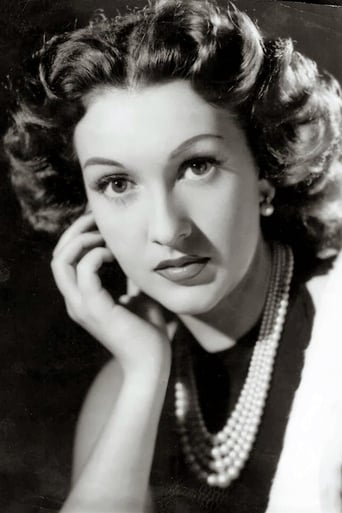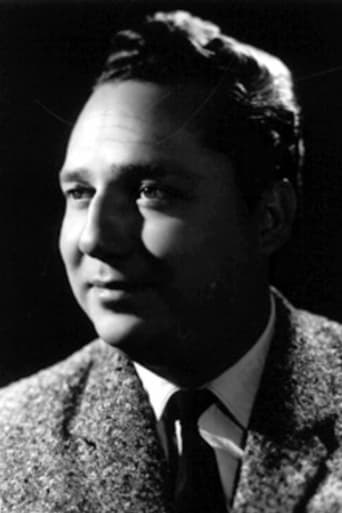StunnaKrypto
Self-important, over-dramatic, uninspired.
GetPapa
Far from Perfect, Far from Terrible
Sameer Callahan
It really made me laugh, but for some moments I was tearing up because I could relate so much.
Skyler
Great movie. Not sure what people expected but I found it highly entertaining.
MartinHafer
I love films from all over the world and I understand that this makes me kind of weird--particularly here in the United States where most folks have little tolerance for subtitles. Perhaps it's because I have seen and reviewed so many films that I often look for something different--and The Skeleton of Mrs. Morales is certainly different-- and in some very good ways.In the past, I've written some articles about cheesy Mexican films-- such as the Aztec mummy films and the luchador (masked wrestler) films of the 60s and 70s. These films are pretty bad, but also are wonderful for a good laugh. But this does NOT mean that all Mexican films of yesterday are bad or silly--there are plenty of wonderful older Mexican movies that I've seen and I hope to see many more. For examples, the comedies of Cantinflas are quite charming and Pedro Infante's musicals are quite enjoyable--plus I am always hopeful that readers will write to me to recommend their favorites (hint, hint--PLEASE send me the names of your favorites)! The Skeleton of Mrs. Morales is an interesting tale because it's one of the few older films I've seen that would seem to endorse murder! Like the wonderful Hollywood film The Suspect (with Charles Laughton), the story is about a nice man who is married to a truly horrible woman. However, Mrs. Morales is unusual in her awfulness because she is two-faced. To her many friends in the local church and her extended family, she is a virtual saint who is forced to live with a terrible husband who drinks too much, abuses her and is irreverent. However, this is all part of Mrs. Morales' sick personality disorder. He is actually a very good husband and tries to love her, but she is both frigid and very cruel towards him--and being married to her is impossible. She wants others to think she's a martyr for staying with such a monster and he just wants a wife who will love him and so he puts up with a lot during their long and very unhappy marriage. All the while, most audience members are hoping that Dr. Morales will either leave this woman or kill her. I was rooting for him to kill her--especially after she smashes the camera he saved up to buy for two years and then convinced her friends that HE beat her! What's next? Well, the word 'skeleton' is in the title...so you might be able to guess SOME of what will happen. However, like all wonderful dark comedies, guessing exactly what will happen is just about impossible! And it features a wonderful twist ending that made me smile.The bottom line is that while most people are much more likely to watch a recent Hollywood movie, there are wonderful films waiting to be discovered from all over the world. And, in the case of The Skeleton of Mrs. Morales, you don't have to travel that far from Hollywood to find a classic.
Edgar Soberon Torchia
Although there is no doubt that "El esqueleto de la señora Morales" is a cult film, it caused no big impression in 1960. The style was too conventional, but there is a playful fluctuation between extremes that moves the story, and makes the film an attractive, enjoyable and enduring production. It is —above anything else— the work of Spanish scriptwriter Luis Alcoriza, who wrote without his usual collaborators (his Austrian wife Janet Riesenfeld, or Spanish Luis Buñuel), in a more direct relation with "Mexicanity", in contrast to Buñuel, who favored everything French, although a few of his best works were about the Mexican cultural being, from Alcoriza's scripts, as "Los olvidados", and "Él". However there is nothing in Alcoriza's filmography as "The Skeleton of Mrs. Morales". The source is an attractive tale told in first person, by Welsh author Arthur Machen, who introduced the search of the Holy Grail in contemporary British literature, and influenced the works of Lovecraft and other authors of the macabre. "The Islington Mystery" (1927) is not a horror tale. It is a direct narration about imperfect crimes, a duel between certainty and probability with a few characters, in which the protagonist Harold Boale does get away with murder, as he sails to the New World and finds a young Swedish wife after killing his detestable wife, a Mrs. Boale who is hardly alive for more than two sentences, giving way to her sister as the leading feminine character: Mary Aspinall, a nurse who is suspicious of the reasons Harold gives to explain why his wife is missing. There is also a medicine student in the plot, who buys a skeleton with a deformed leg and presents it as "evidence" to the police, which leads to Boale's trial, the part of the tale I enjoyed the most, led by a brilliant defense attorney. In Alcoriza's adaptation —more sardonic and moralizing than Machen's tale—, Pablo Morales (Arturo de Córdova) exhibits his wife's skeleton in his shop window, goes through a similar trial as Boale, but has a different ending. The atmosphere of I World War, which in Machen's tale distracts from clumsy crimes and unresolved disappearances, is turned into the fears of Mexican middle class, and the repression of the Catholic church. Morales enjoys a few little pleasures in life: a photographic camera, occasional talks with his friends at the local bar, and, first of all, his work as taxidermist. His wife, a good looking woman with a deformed leg and lameness, is his enemy, rejects his sexual advances, and is allied to the local priest. Morales tries to deal with his sexual urges because —as a rare bird inside the Catholic universe, and unfortunately for him— he is faithful. In spite of his skillful tasks and a few defensible titles (especially comedies), the filmography of director Rogelio A. González has nothing comparable to "El esqueleto de la señora Morales". On the other hand, the film triggered Alcoriza's career, perhaps because he could have made a better job. The following year, he directed his first film, followed by remarkable titles as "Tlayucán", "Tiburoneros", and "Tarahumara".
Andres Cardenas
Few times has the Mexican movies industry explored this type of comedy. This particular film is surprisingly very well made, specially since its 2 main characters are played by an Actor, Arturo de Cordova, and an Actress, Amparo Rivelles, whose background is in tragic and/or very formal performances. It is a story of a married couple whose life has come to the point of a disaster, basically due to the jealousness of the wife. The Husband a taxidermist announces to their friends that she has gone to another City on vacations, but keeps in his shop an skeleton. This of course is the center plot of the movie and all black humor situations are derived from this. The movie is light and keeps the viewers entertained throughout its entire length.
voacor
I used to have tape of this movie I made when it appeared on TV down in Mexico City during one of my visits there years ago. I only saw it a couple of times and don't have the tape anymore. I was always hoping it would come out on DVD.This film could be compared to some of Alfred Hitchcock's more macabre and darkly humorous films. This was made towards the end of the golden period in Mexican cinema. In the 1960's things took a turn towards the cheesy side and only within the past several years has Mexican cinema seen a bit of a turnaround, with some world-class productions.The black and white photography is excellent and the acting is superb in this film about a man who stuffs animals for a living and has a wife who is even colder than the dead creatures in his workshop. I won't say more so as not to have any spoilers. See it if you can.






